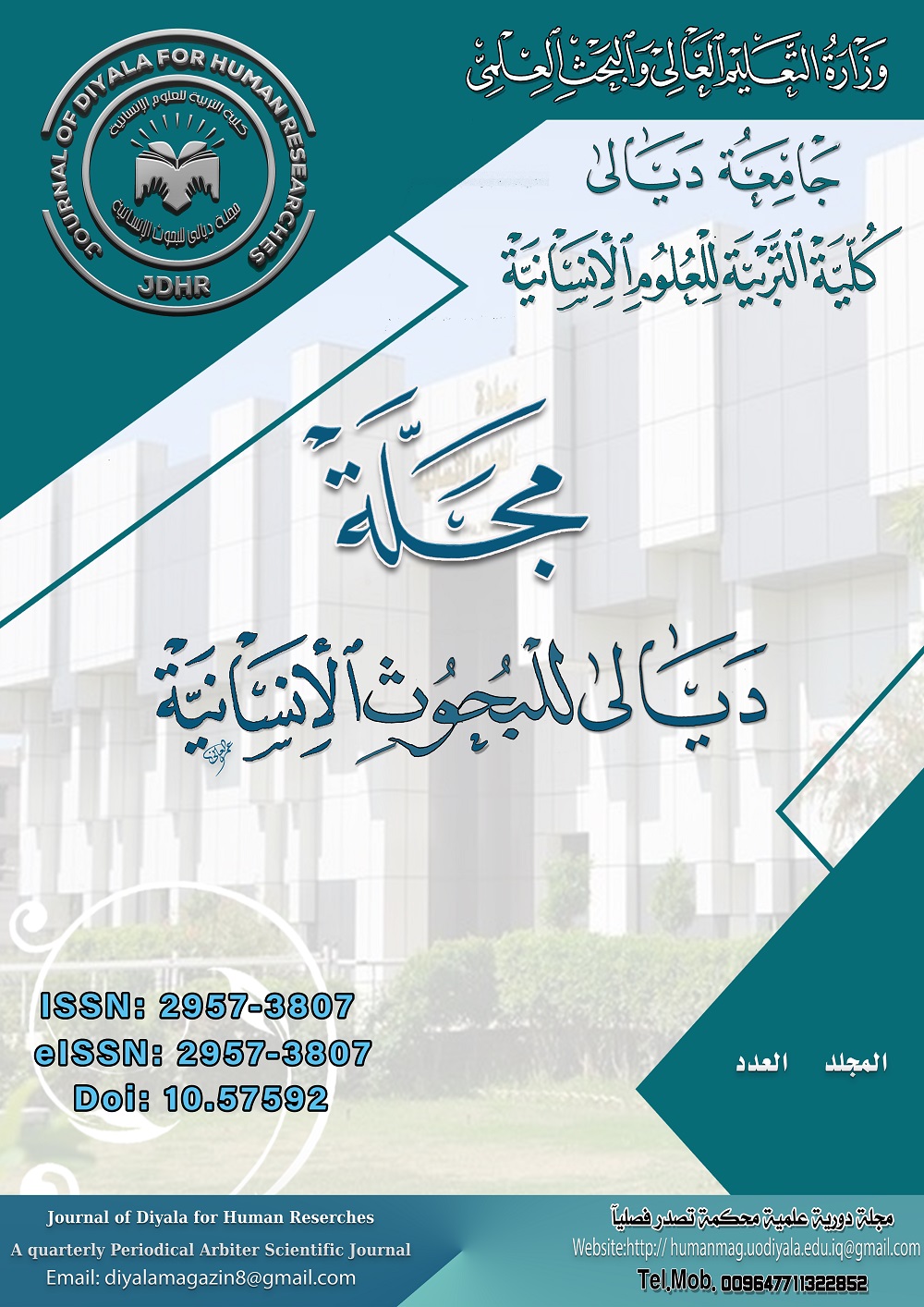أثر باستراتيجية فجوة المعلومات في اكتساب المفاهيم التاريخية وتنمية التفضيل المعرفي لدى طالبات الصف الرابع الادبي
Main Article Content
Abstract
The research aims to identify after teaching history the strategy of the information gap in the acquisition of historical concepts and the development of cognitive preference among fourth grade literary students, the researcher used experimental design with partial control and the pre- and post-test, either the research community may consist of (5256) students The research sample (64) student The research was applied in a preparatory school in Basmat for girls and the researcher chose Division (B) to represent the experimental group that is taught according to the information gap strategy, and Division (A) represented the control group that is taught in the way The number of female students reached (64) students (32) students in each division. The two groups were rewarded in a number of variables, the researcher prepared the two research tools to test the acquisition of historical concepts and the scale of cognitive preference, and the truthfulness and stability of the two tools were verified using the (T-test) test to process the data, the results showed the superiority of the experimental group that was studied according to the information gap strategy in the test of acquiring historical concepts and cognitive preference in the post-test.
Conclusions: In light of the results of the research, the researcher concluded the following:
1- Teaching according to the information gap strategy Raising the level of acquisition of historical concepts for students by building knowledge for themselves according to the steps of the strategy.
2- Teaching according to the information gap strategy gives students cognitive patterns.
In light of the results of the research, the researcher recommends the following: -
1- Teaching students how to think and use cognitive patterns makes it a daily habit to take advantage of the huge amount of information in the face of daily situations.
2- Including various activities and exercises in history at the secondary stage can help develop cognitive patterns and correct cognitive growth among students.
The researcher also suggests the following:
1- Conducting a study to find out the impact of the information gap strategy at the levels of study and other subjects and on both sexes.
2- Conducting a study to find out the impact of the information gap strategy on achievement and the development of metacognitive thinking skills among undergraduate students.
Article Details

This work is licensed under a Creative Commons Attribution 4.0 International License.
